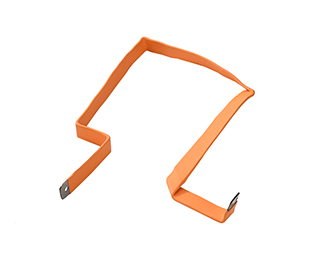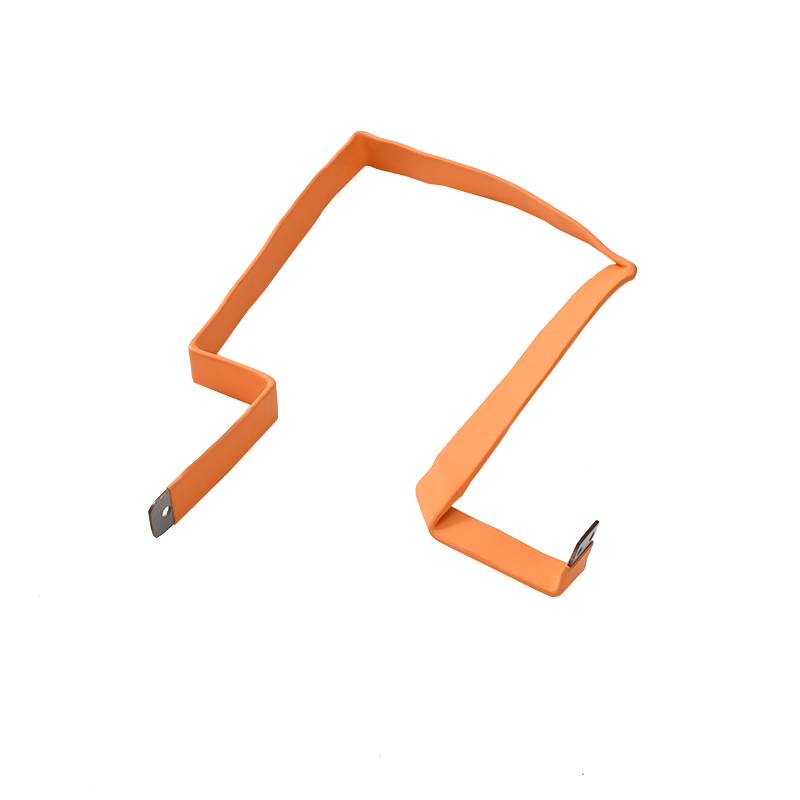

 Copper Busbar Insulated is an advanced material that combines conductive and insulating functions. On the basis of Copper Busbar, it effectively isolates the busbar from the external environment by adding an insulating layer, thus greatly improving the safety of the electrical system. Insulated Copper Busbar not only inherits the excellent electrical conductivity of copper busbar to ensure the stable transmission of current, but also has excellent insulation properties of its insulation layer, effectively preventing the occurrence of electrical faults. The insulating layer of copper busbar is made of a variety of materials, which can be flexibly selected according to different application environments and needs, fully meeting the requirements of use in various complex scenarios. Due to its unique advantages, Insulated Copper Busbar is widely used in electric power, communications, new energy vehicles and other fields, providing a strong guarantee for the safe and stable operation of the circuit system.
Copper Busbar Insulated is an advanced material that combines conductive and insulating functions. On the basis of Copper Busbar, it effectively isolates the busbar from the external environment by adding an insulating layer, thus greatly improving the safety of the electrical system. Insulated Copper Busbar not only inherits the excellent electrical conductivity of copper busbar to ensure the stable transmission of current, but also has excellent insulation properties of its insulation layer, effectively preventing the occurrence of electrical faults. The insulating layer of copper busbar is made of a variety of materials, which can be flexibly selected according to different application environments and needs, fully meeting the requirements of use in various complex scenarios. Due to its unique advantages, Insulated Copper Busbar is widely used in electric power, communications, new energy vehicles and other fields, providing a strong guarantee for the safe and stable operation of the circuit system.
The core conductor is made from high-conductivity copper (such as C11000 or C10100), offering low resistance, minimal energy loss, and efficient power transmission, ensuring stable current flow even in high-load conditions.
The insulating layer, made from materials like PVC, heat-shrink tubing, or epoxy coatings, provides electrical isolation, preventing short circuits, electric shocks, moisture, and chemical corrosion, ensuring long-lasting safety.
The insulation materials offer excellent heat resistance, maintaining stable performance at temperatures ranging from -40°C to +125°C, which makes it ideal for high-temperature operating conditions.
The insulation layer also provides excellent mechanical strength, protecting the copper conductor from external impact, vibration, and environmental damage, extending the lifespan of the busbar and reducing maintenance costs.
| Parameter | Specification |
|---|---|
| Material | High-Conductivity Copper (C11000, C10100) |
| Insulation Material | PVC, Heat-Shrink Tubing, Epoxy Coating |
| Current Capacity | Up to 4000A |
| Thickness | 2mm - 20mm |
| Width | 10mm - 200mm |
| Length | Customizable (Standard: 1m, 2m, or 3m) |
| Operating Temperature | -40°C to +125°C |
| Surface Treatment | Plain, Tin-Plated, Nickel-Plated |
| Dielectric Strength | Up to 25kV |
| Applications | Power Distribution, Electrical Panels, Renewable Energy Systems |
Power Distribution Systems: Used in substations, distribution cabinets, and switchgear to improve system safety and efficiency.
Industrial Equipment: Suitable for connecting electrical components in motors, transformers, and generators, supporting high loads and high-temperature environments.
Building Electrical Systems: Provides reliable power supply in commercial and residential buildings, ensuring safe and stable energy flow.
Transportation Systems: Applied in electric buses, subways, and other transport networks, ensuring stable power transmission for high-load demands.
Enhanced Safety: The insulation layer minimizes the risk of short circuits and electric shocks, ensuring the safety of both operators and equipment.
Improved Efficiency: Copper’s high conductivity reduces power loss and ensures reliable energy transmission, improving overall system efficiency.
Longer Equipment Lifespan: The insulation layer protects the copper busbar from external damage, corrosion, and wear, extending the life of your equipment and reducing maintenance costs.
Adaptability to Harsh Environments: Whether in extreme temperatures, humid conditions, or exposed to corrosive substances, the insulated copper busbar ensures reliable performance in a variety of challenging environments.
FAQ:
What is Insulated Copper Busbar?
Insulated copper busbar is an electrical conductor made of copper and covered with an insulating material for power transmission and distribution. The insulation provides electrical isolation and mechanical protection against short circuits and external damage.
What are the main uses of insulated copper busbar?
Insulated copper bus bars are widely used in power distribution systems, industrial equipment, building electrical systems and transportation systems, responsible for the transmission and distribution of electrical power.
What are the insulating materials for insulated copper bus bars?
Insulation materials usually include plastic, rubber, epoxy, etc. These materials provide electrical isolation, resistance to heat and corrosion, and other features.
What are the main benefits of insulated copper bus bars?
Key benefits include excellent electrical conductivity, effective electrical isolation, high temperature and corrosion resistance, and mechanical strength. It improves system safety, efficiency and equipment life.
What is the temperature tolerance range of insulated copper busbar?
The temperature range of insulated copper busbars depends on the type of insulating material and is usually stable from -40°C to +120°C. Some high-performance materials can withstand even higher temperatures.
What is the mechanical strength of insulated copper busbars?
Insulated copper busbars have high mechanical strength and can withstand a certain amount of physical shock and vibration. The insulation is also designed to help minimize the effects of external stresses on the conductors.
How does insulated copper busbar provide electrical isolation?
Insulation provides effective electrical isolation, preventing direct contact between conductive parts and other conductors, thus reducing the risk of short circuits and the danger of electric shock.
What is the difference between insulated and uninsulated copper bus bars?
Insulated copper busbars have an extra layer of insulation, while uninsulated copper busbars do not. Insulated copper busbars are more effective in providing electrical isolation and protection for applications that require a high level of safety.
How do I install insulated copper bus bars?
When installing insulated copper busbars, you need to ensure that the busbars make good contact with the connecting components and are properly secured in the electrical system. The installation process should comply with the relevant electrical safety codes to ensure proper functioning.
What are the maintenance and care requirements for insulated copper busbars?
Insulated copper busbars need to be inspected regularly for damage or deterioration of the insulation to ensure that the conductors are not corroded or worn. The busbar surface also needs to be cleaned to prevent dirt or chemicals from affecting the insulation. Maintenance should follow electrical safety standards to ensure the safety of operators.